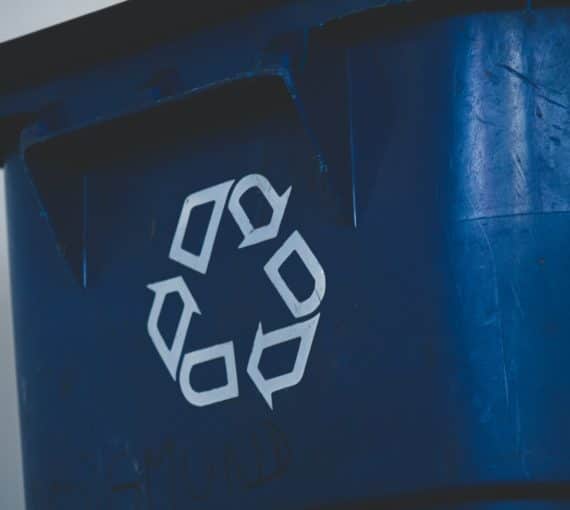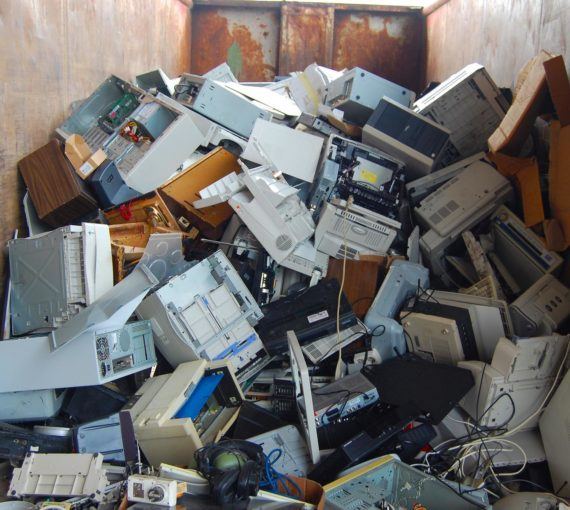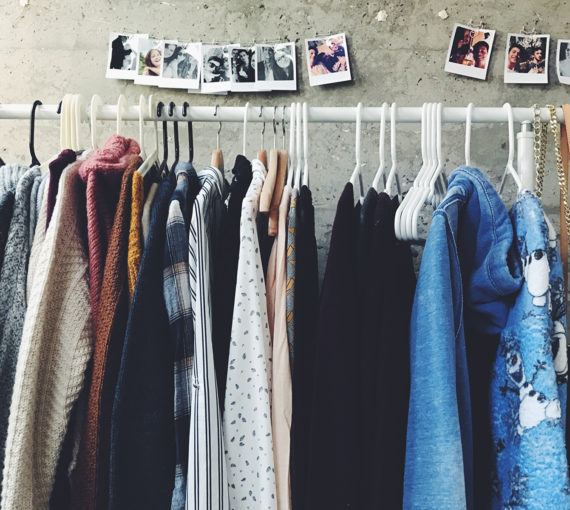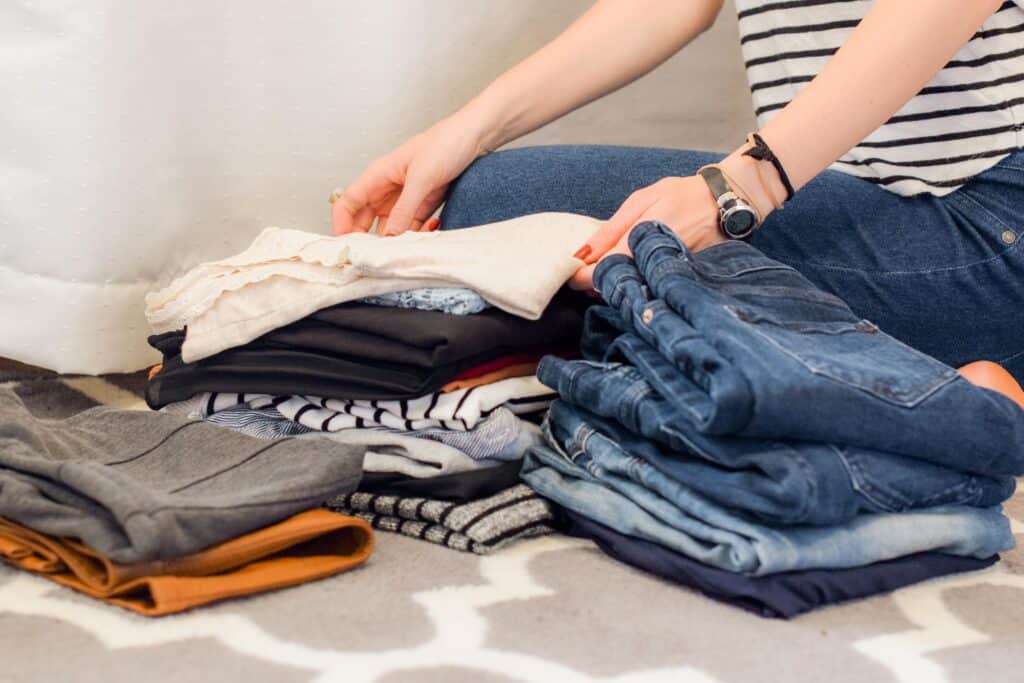
Get into eco-friendly decluttering! Reduce waste. Promote more responsible consumer habits. And create a more harmonious, functional home that supports your physical and mental wellbeing. (Photo: Sarah Brown via Unsplash)
Decluttering is the process of intentionally arranging your living space and getting rid of unnecessary items. It helps create a more organized home. And because it also reduces waste and promotes more responsible consumer habits, it’s eco-friendly.
Decluttering has a range of benefits. In the ancient Chinese traditional practice of feng shui, positive and balanced energy flow inside your home is important. The more stuff you have lying around, the more you may experience a sense of chaos.
Decluttering can also:
- Enhance mental clarity. A clutter-free space may lead to a clutter-free mind. For some, less physical chaos reduces stress and anxiety.
- Increase productivity. Find what you need quickly with fewer distractions to interrupt your work or task. Focus better. Save time. Be more productive.
- Improve health. Clutter can contribute to the buildup of dust and allergens and poor air quality. Decluttering can prevent “pests”, reduce dust, mold and mildew.
Start small and don’t strive for perfection. The goal: only hang on to items that serve you now.
Don’t know where to begin?
Eight tips for decluttering your space
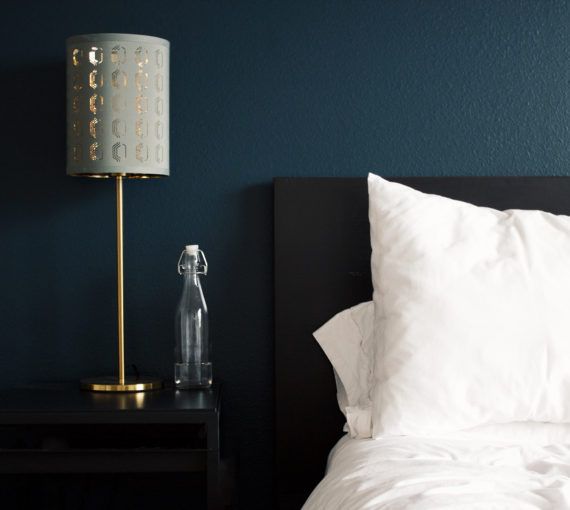
Bedroom
A bedroom — often a sanctuary — can instead become a dumping ground for a lot of unnecessary stuff.
A clean, clutter-free space can also improve sleep! Start in a corner and clear off one surface at a time.
- Keep nightstands and dressers free of clutter. Only display items that are essential or hold sentimental value.
- If your bedroom is small, create more space by letting go of unneeded furniture.
- Use the space under your bed to store items you don’t often need out of sight.
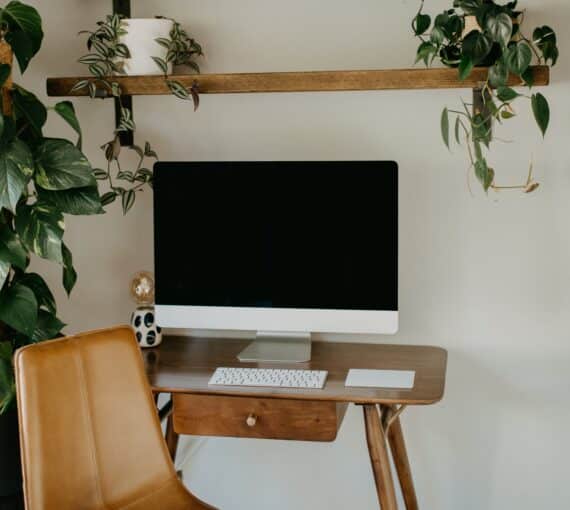
Home office
Clear everything off your desk except your computer. Choose three items you must have within arm’s reach. Sort the rest into three piles: review, donate, toss.
- Take old computers to a second-hand shop. Recycle unwanted electronics.
- Sort through old paperwork and documents. Shred or recycle what’s not important to keep.
- Use cable organizers to keep cords tidy and prevent tangles.
- Got spare wires, gadgets and office supplies? Recycle the tricky stuff — for the rest, adopt lessons from the other Rs.
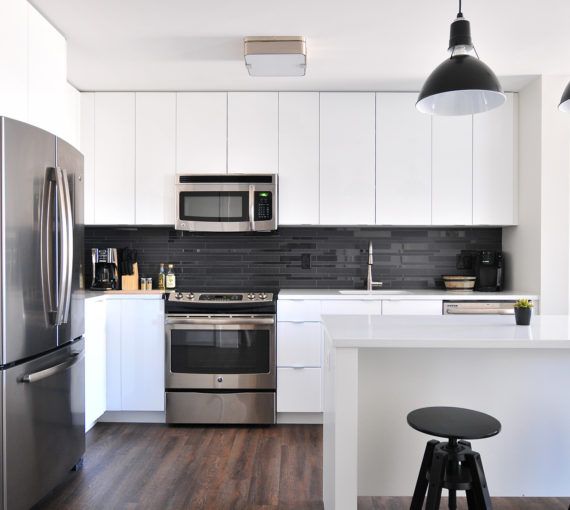
Kitchen
Kitchens often connect to other living spaces. They may get cluttered with kitchen and non-kitchen-related items. First take everything out to assess what you have.
- Got a “junk drawer”? Sort through what’s needed and what you can recycle, toss or donate.
- Look for “forgotten” things tucked away in hard-to-reach places.
- Check pantries and cabinets for expired food, unused kitchen cookware and glassware.
- Re-organize drawers, cabinets and pantries. Store related items together.
- Limit duplicates.
- Take things not often used off countertops.
- Tackle the fridge — an opportunity to reassess how you store food to help end food waste.
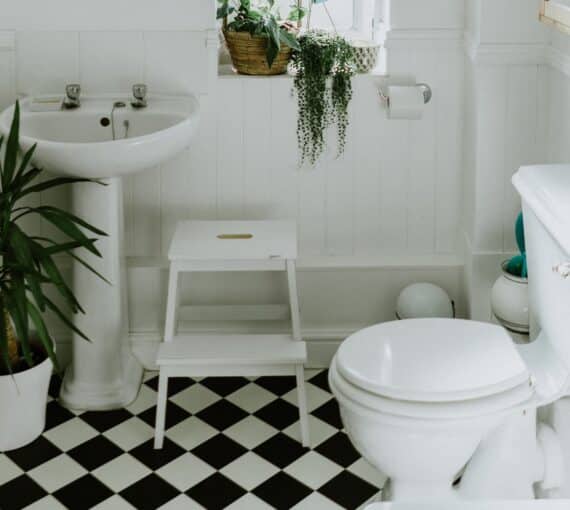
Bathroom
Create a more peaceful and relaxing space. Promote hygiene. Save time and money.
- Empty all items from cabinets, drawers and shelves.
- Check expiration dates on medications, skin care products and cosmetics. Properly dispose of what’s expired or no longer safe to use. Do not flush.
- Avoid accumulating multiples of the same product or item. Donate leftovers to local agencies or shelters requesting supplies.
- Recycle old plastic dental products.
- Streamline essentials. Identify products you use daily and ensure they’re easy to find.
- Invest in storage solutions that separate items by their use or frequency of use.
- Keep only towels and linens you use often. Donate or repurpose the rest.
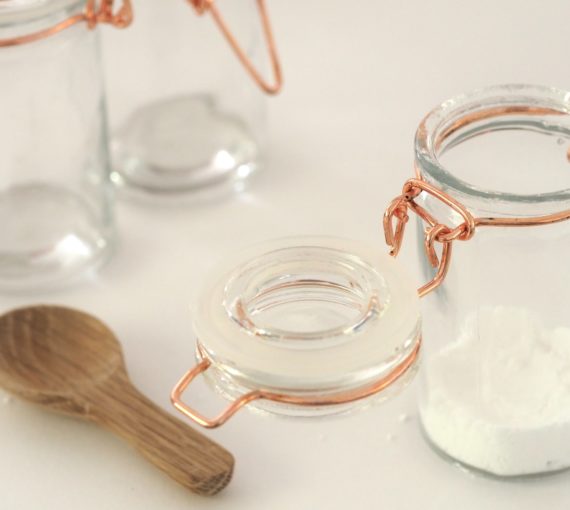
Cleaning supplies
Take stock of your cleaning supplies and clean newly decluttered spaces.
- Dispose of expired cleaning products appropriately. Do not flush.
- If you’re using commercial cleaners full of harsh and toxic chemicals, use what’s left then switch to green cleaners or make your own. Did you know you can clean most of your home with just a few eco-friendly ingredients?
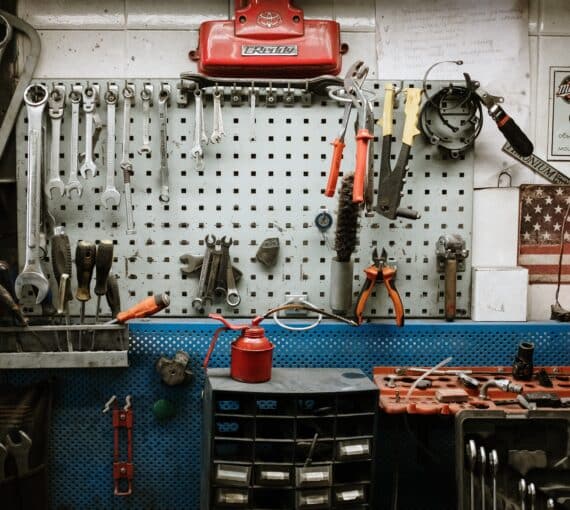
Garage, carport or storage locker
“Out of sight, out of mind” is often just a way of not facing things. Time to deal with them!
- Group items by category (e.g., tools, sports equipment, seasonal items, holiday decorations).
- Invest in shelving, pegboards and storage bins.
- See if your neighbours are interested in unused bikes and sports equipment.
- Sift through camping gear for items and equipment you didn’t use on your last few trips.
- Donate, recycle or toss broken, unused or redundant items.
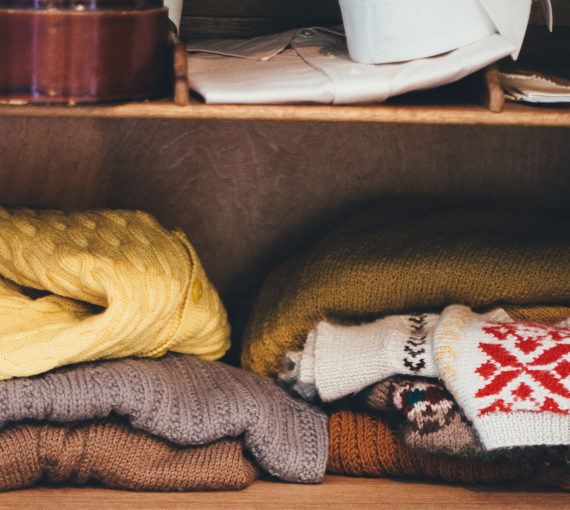
Closet and drawers
Got overcrowded closets or overstuffed drawers? These can lead to unnecessary stretches and pulls on clothes and linens. They’re also perfect environments for “pests”!
- Local shoemakers may be able to use parts of shoes in reasonable shape.
- Recycle eyeglasses.
- Do away with unwanted items in your wardrobe by hosting a clothing swap.
- The rest: Consign, sell online through second-hand marketplaces or donate to local charity thrift stores or shelters.
- Take care of clothing and linens you keep. That will preserve their quality and increase their longevity.
- Get creative with reorganization. Use old shoe boxes to sort larger miscellaneous items. Use plastic inserts from cosmetic products as drawer organization bins. Use dust bags, cosmetic baggies and other pouches to keep smaller items safe and sorted. Reuse, reclaim and renew!
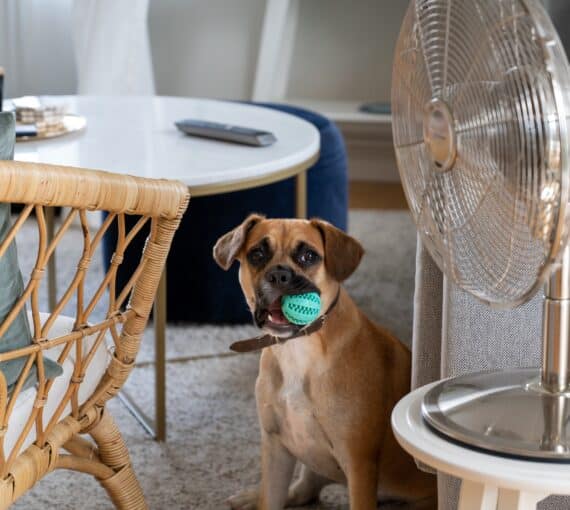
Pet goods and supplies
Pets come with many needs — food, toys, grooming supplies, bedding and more.
- Donate unused toys that are not damaged or broken.
- Safely dispose of expired and unused medicine. Do not flush.
- Donate transport crates, old towels, leashes and dishes to rescue organizations and animal shelters.
- Organize what’s left into baskets and bins.
Aren't using your things? Get them into the hands of people who will!
Reselling your clutter
Make sure to market high-quality and big-ticket items appropriately. Great, close-up photos are key to successful online transactions. Create a descriptive, enticing post. Be sure the stuff you’re selling is in season. Sell via VarageSale, Kijiji, Craigslist or Facebook Marketplace.
Organize a neighbourhood-wide garage sale or swap meet. It’s a way to socialize, build community and reduce waste. (Make it a block party!)
Donating your clutter
Donate what you don’t want or need to local organizations. Check with local community shelters and non-profit organizations to see if they will take specific items (e.g., toiletries, bedding, etc.).
Change your thinking
Bring less home. When you consume less, you waste less. You’ll save money. And focusing on life’s simple pleasures — spending time in nature, being with loved ones, making a difference to others — provides more purpose, belonging and happiness than buying and consuming.
In her book A Bunch of Pretty Things I Did Not Buy, Sarah Lazarovic’s “Buyerarchy of Needs” puts “use what you have” at the top. That’s followed by borrow, swap, thrift, make and finally buy.
Switch your thinking from “I want that. Where can I buy it?” to “Do I really need that?” and “Can I find it another way?” For instance, the Toronto Tool Library and the Vancouver Tool Library let people borrow items for a nominal annual membership fee. Seek items you can rent or borrow rather than buy — especially if you’ll only use them a few times.
Decluttering is about creating a harmonious and functional environment that supports your physical and mental wellbeing. Clearing space in our homes — and minds — feels great! It’s also better for the planet. Make it a routine and schedule seasonal cleanups, involving everyone you live with.

